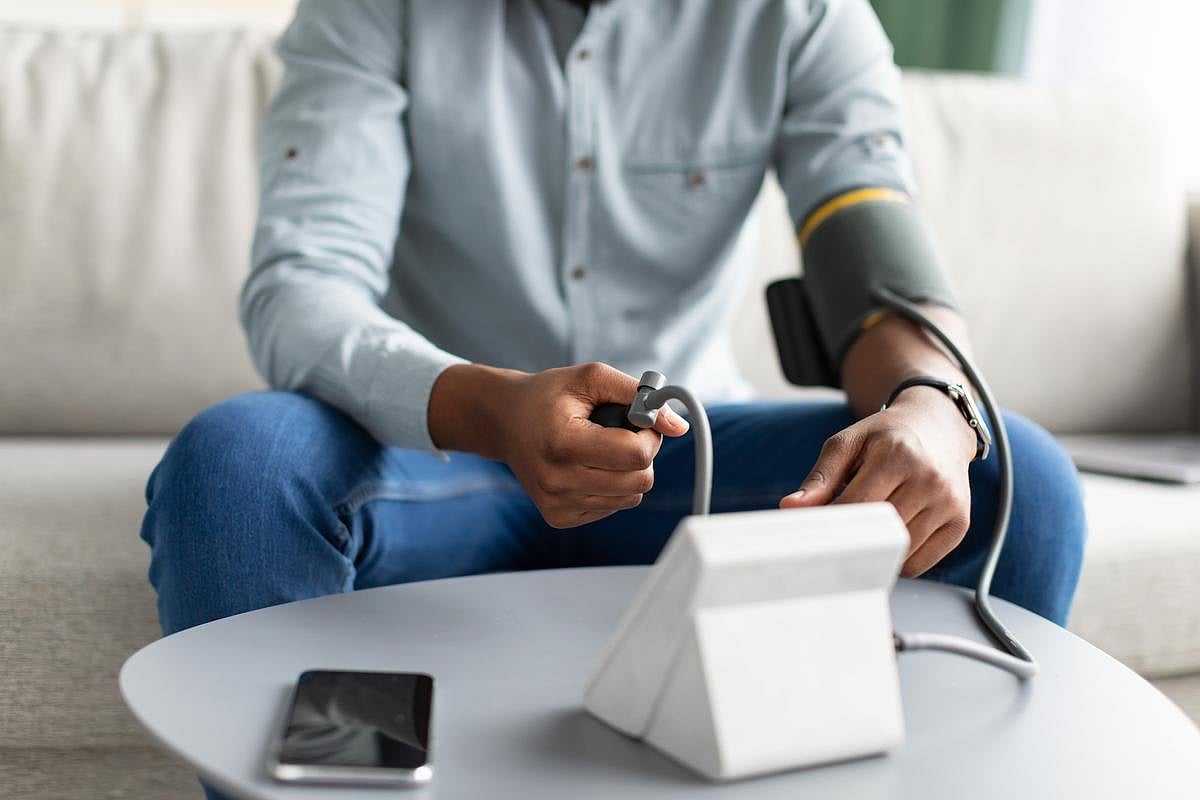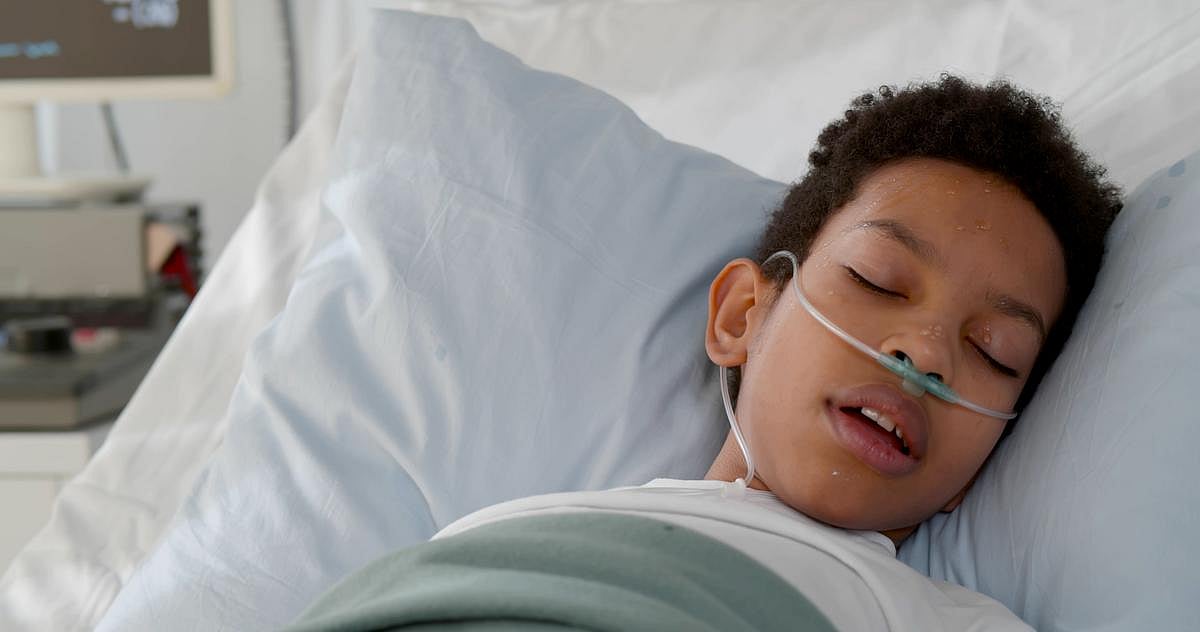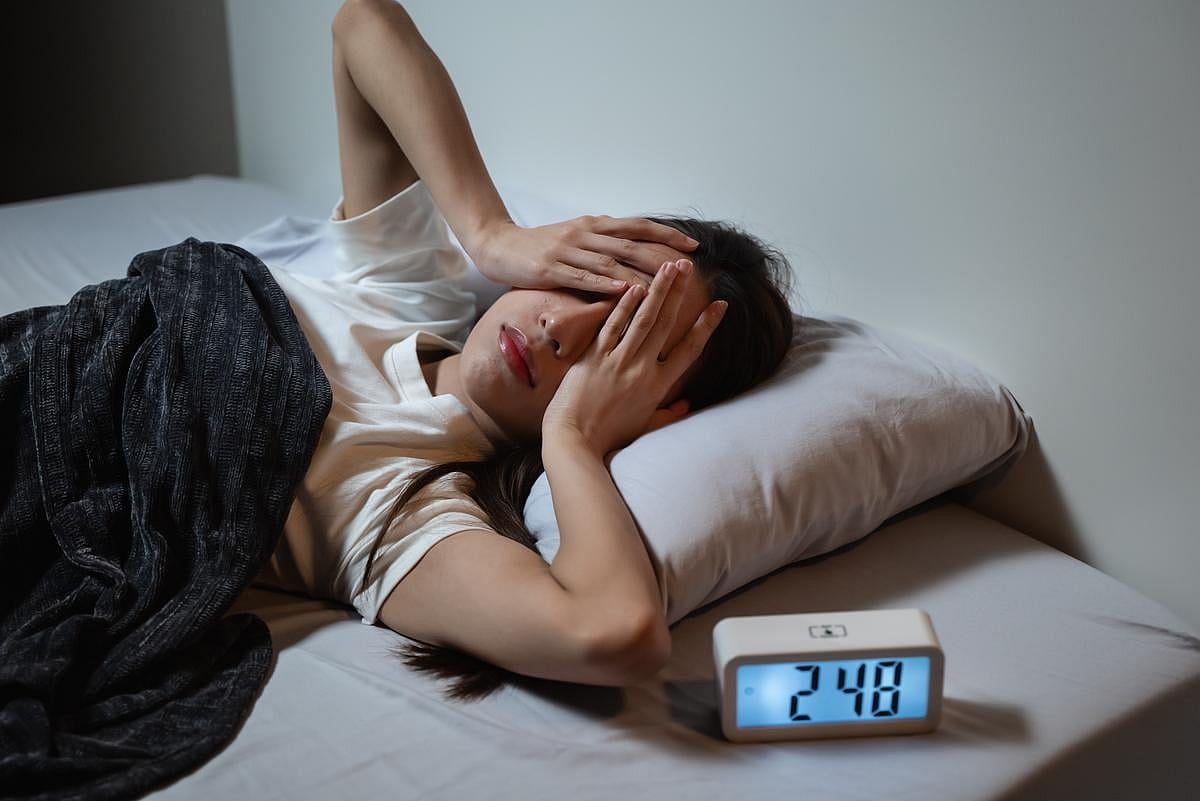Get Healthy!
Staying informed is also a great way to stay healthy. Keep up-to-date with all the latest health news here.
30 May
GLP-1 Weight Loss Drugs May Lower the Risk for 14 Obesity-Related Cancers
A new study finds women taking GLP-1 Receptor agonists were significantly less likely to develop obesity-related cancers.
29 May
U.S. Mothers Struggling With Mental Health Challenges
A new study finds more moms in the U.S. describe their mental health as fair or poor. Researchers say their physical health is also on the decline.
28 May
New Treatment Eases Knee Pain Through the Ear
A new study finds stimulating the vagus nerve through the ear helps relieve knee pain in a significant number of patients.
How Caffeine Affects Your Brain While You Sleep
SUNDAY, June 1, 2025 (HealthDay News) — Your morning cup of coffee might help you power through the day — but could it be keeping your brain too alert at night, even while you sleep?
A new study suggests that caffeine doesn’t just affect your energy levels. It may also change how your brain functions during sleep, especia...
- I. Edwards HealthDay Reporter
- |
- June 1, 2025
- |
- Full Page
Feeling Work Stress? Your Dog Might Be Feeling It Too
SATURDAY, May 31, 2025 (HealthDay News) — Stress from work doesn’t always stay at the office — and it may be affecting more than just your mood.
A new study finds that your dog may be picking up on it, too, especially if you have a hard time letting go of work worries at the end of the day, Psychology Today
- I. Edwards HealthDay Reporter
- |
- May 31, 2025
- |
- Full Page
Dr. Robert Jarvik, Inventor of First Human Artificial Heart, Dies at 79
FRIDAY, May 30, 2025 (HealthDay News) — Dr. Robert Jarvik, the man behind the world’s first permanent artificial heart used in a human, has died.
He was 79, The New York Times reported.
His wife, writer Marilyn vos Savant, said he died Monday at their home in Manhattan due to complications from Parkinson&rs...
- I. Edwards HealthDay Reporter
- |
- May 30, 2025
- |
- Full Page
FDA Chief: COVID Vaccine in Pregnancy Should Be Personal Choice
FRIDAY, May 30, 2025 (HealthDay News) — Federal health officials have pulled back a key recommendation that pregnant women get the COVID-19 vaccine — causing sharp criticism from doctors and other experts.
The announcement came Tuesday from Health and Human Services Secretary Robert F. Kennedy Jr., who said the government will ...
- I. Edwards HealthDay Reporter
- |
- May 30, 2025
- |
- Full Page
Hormel Recalls Over 256,000 Pounds of Canned Beef Stew
FRIDAY, May 30, 2025 (HealthDay News) — Hormel Foods is recalling more than 256,000 pounds of its Dinty Moore Beef Stew amid reports that wood fragments were found in some cans, according to U.S. health officials.
The U.S. Department of Agriculture's Food Safety and Inspection Service (FSIS) issued the nationwide recall May 28.
- I. Edwards HealthDay Reporter
- |
- May 30, 2025
- |
- Full Page
Wildfire Smoke Threatens Heart, Lung Health For Months Afterward
FRIDAY, May 30, 2025 (HealthDay News) — Skies choked with wildfire smoke can affect people’s heart and lung health for up to three months afterwards, a new study says.
The particle pollution created by wildfires continues to increase people’s risk of hospitalization for months after the smoke clears, researchers reported ...
- Dennis Thompson HealthDay Reporter
- |
- May 30, 2025
- |
- Full Page
Combo Diabetes/High Blood Pressure Threatening More American Lives
FRIDAY, May 30, 2025 (HealthDay News) — Twice as many Americans now face the increased risk of death that comes from having both high blood pressure and type 2 diabetes, a new study reports.
About 12% of the U.S. population had high blood pressure and type 2 diabetes at the same time in 2018, up from 6% in 1999, researchers reported ...
- Dennis Thompson HealthDay Reporter
- |
- May 30, 2025
- |
- Full Page
Eight Times More Young Adults Take Meds To Protect Against HIV Infection
FRIDAY, May 30, 2025 (HealthDay News) — Eight times more young Americans are taking antiretroviral meds to protect them from HIV infection than a decade ago, a new study says.
About 208 of every 100,000 U.S. young adults were using pre-exposure prophylaxis, or PrEP, to prevent becoming infected with HIV in 2023, researchers reported ...
- Dennis Thompson HealthDay Reporter
- |
- May 30, 2025
- |
- Full Page
Parents Can Sense Potential Critical Illness In Their Kids, Study Says
FRIDAY, May 30, 2025 (HealthDay News) — A parent’s instincts regarding their child’s health usually are right on the money, even when they’ve taken the child to an ER, a new study says.
Parental worry over a kid’s deteriorating health strongly predicts how critically ill the child might become, researchers rep...
- Dennis Thompson HealthDay Reporter
- |
- May 30, 2025
- |
- Full Page
Military Service Might Protect Against Depression
FRIDAY, May 30, 2025 (HealthDay News) — The mentally scarred, deeply depressed combat veteran is an indelible stereotype promoted by movies and TV.
The post-traumatic stress and despair that some suffer following military deployment have prompted concerns that service members are highly vulnerable to depression.
However, the op...
- Dennis Thompson HealthDay Reporter
- |
- May 30, 2025
- |
- Full Page
About 40% Of U.S. Smokers Struggle With Disability
FRIDAY, May 30, 2025 (HealthDay News) — About 2 of 5 smokers in the U.S. suffer from some form of disability, a new study says.
And in 1 of 7, their disability is so severe it interferes with their daily lives, researchers report.
“The prevalence of disability among adults in the USA who currently smoke c...
- Dennis Thompson HealthDay Reporter
- |
- May 30, 2025
- |
- Full Page
RFK Jr. May Block U.S. Scientists From Publishing in Top Medical Journals
THURSDAY, May 29, 2025 (HealthDay News) — U.S. Health and Human Services Secretary Robert F. Kennedy Jr. said this week that he may no longer allow government scientists to publish research in top medical journals.
Kennedy made the statement on a podcast called The Ultimate Human where he called the journals “corrupt&r...
- I. Edwards HealthDay Reporter
- |
- May 29, 2025
- |
- Full Page
Burning Out? An E-Tattoo Can Track Mental Strain
THURSDAY, May 29, 2025 (HealthDay News) — Ever thought so long and hard on a problem that your forehead grew hot, your brain became frazzled and your eyes grew bleary?
A new temporary tattoo can help measure that sort of mental strain, researchers report.
The wireless forehead electronic tattoo decodes brainwaves to measure men...
- Dennis Thompson HealthDay Reporter
- |
- May 29, 2025
- |
- Full Page
Marijuana Use Linked to Early Signs of Heart Damage
THURSDAY, May 29, 2025 (HealthDay News) — Smoking or eating marijuana on a regular basis may damage a healthy person's blood vessels much like tobacco does, a small study finds.
Researchers from the University of California, San Francisco (UCSF) looked at the blood vessels of 55 people between 18 and 50 years old. Some smoked marijua...
- I. Edwards HealthDay Reporter
- |
- May 29, 2025
- |
- Full Page
U.S. Ends $600M Moderna Bird Flu Vaccine Contract
THURSDAY, May 29, 2025 (HealthDay News) — The U.S. government has canceled a $600 million contract with Moderna to develop a vaccine for bird flu and other dangerous flu strains, raising concern among experts.
The deal, forged under the Biden administration, aimed to prepare for future flu pandemics by funding Moderna’s work on...
- I. Edwards HealthDay Reporter
- |
- May 29, 2025
- |
- Full Page
Singing Soothes The Savage Infant, Clinical Trial Says
THURSDAY, May 29, 2025 (HealthDay News) — Singing to your baby can soothe them considerably and improve their overall mood, a new clinical trial shows.
Parents given smartphone-based music enrichment training sang more often to their babies, and those babies were generally happier and more content, researchers reported May 28 in the ...
- Dennis Thompson HealthDay Reporter
- |
- May 29, 2025
- |
- Full Page
Dementia Tied To Heart, Metabolic Diseases
THURSDAY, May 29, 2025 (HealthDay News) — Heart disease, strokes and diabetes contribute to many dementia cases in the United States, but the risk is not equal everywhere, a new study says.
Overall, more than a third (37%) of U.S. dementia cases are linked to eight conditions: diabetes, heart failure, atrial fibrillation, coronary ar...
- Dennis Thompson HealthDay Reporter
- |
- May 29, 2025
- |
- Full Page
Belly Fat Linked To Psoriasis
THURSDAY, May 29, 2025 (HealthDay News) — Belly flab appears to be a stronger warning sign for psoriasis than fat located elsewhere on the body, a new study says.
Fat around the abdomen is more strongly linked to psoriasis risk that total body fat, particularly in women.
“Our research shows that where fat is stored in the...
- Dennis Thompson HealthDay Reporter
- |
- May 29, 2025
- |
- Full Page
Poor Sleep Sign Of Brain Problems After Mild Stroke
THURSDAY, May 29, 2025 (HealthDay News) — Difficulty sleeping after a mild stroke could be a sign of continuing brain health problems in some people, a new study says.
Stroke victims who spent more time in bed struggling to sleep had lower scores on tests of thinking and memory skills, researchers reported in the journal Neurolog...
- Dennis Thompson HealthDay Reporter
- |
- May 29, 2025
- |
- Full Page
Pizza, Soup and Chicken Among Top Sources of Sodium for All Americans
THURSDAY, May 29, 2025 (HealthDay News) — These days Americans can agree on few things, but unfortunately, pizza, soup and chicken aren’t among them, a new study says.
Those three foods are some of the main sources of sodium for Americans of all racial and ethnic groups, contributing to high blood pressure and heart disease in ...
- Dennis Thompson HealthDay Reporter
- |
- May 29, 2025
- |
- Full Page

























